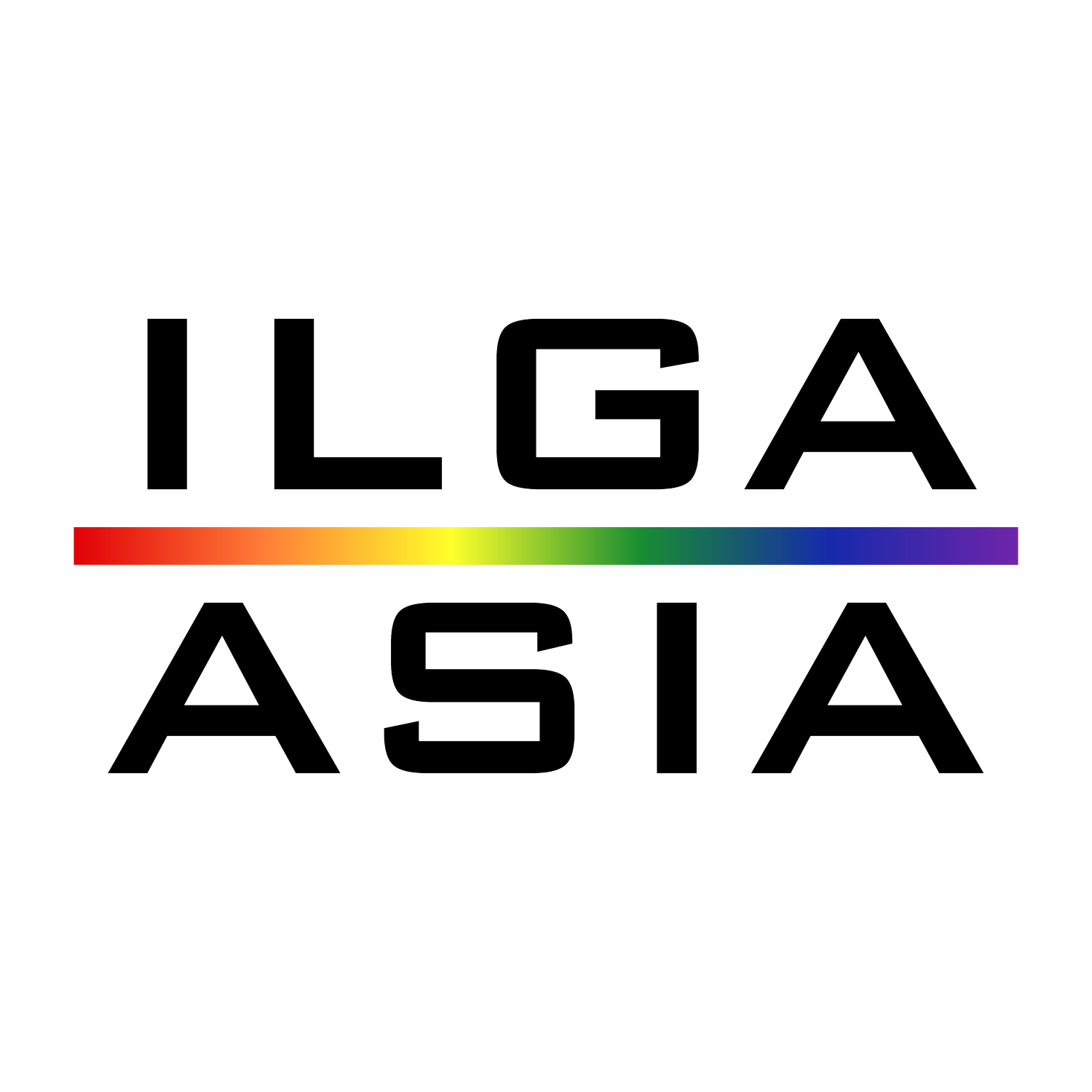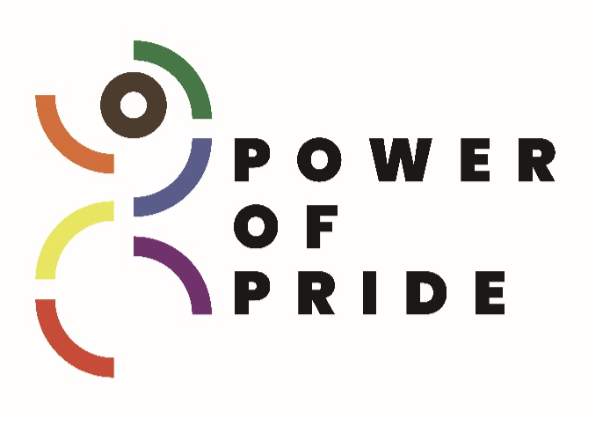6 positions available (3 for Africa and 3 for Asia)
Candidates from the following regions are invited to apply:
South Asia, West Asia, East Asia and Southeast Asia, North Africa, Anglophone West Africa, Central Africa and East Africa (at the moment, Francophone West Africa and Southern Africa are sufficiently represented in the committee)
Applications from people under the age of 30, and applications from LBQ, transgender/gender-variant and intersex individuals are particularly encouraged.
Deadline: 15 January 2024
Application form: https://docs.google.com/forms/d/1qjcBKD1roU1ei0EsSfhFMBIt0FlT9yyTsMfjClP50-c/edit
Background
The Power of Pride Alliance is a consortium of three organisations, ILGA Asia, Pan Africa ILGA and COC Netherlands, that is working in a Strategic Partnership with the Dutch government for five years (2021 - 2025). The main aim of the program is to work towards diverse and inclusive societies where people can participate to their full potential. This is based on a Theory of Change developed after broad consultations in the movement. The program supports over 220 LGBTI groups, initiatives, and organisations in the Asian and African regions.
Our vision on working with local organisations is closely linked to our goal of ensuring that LGBTI can participate to their full potential. Consequently, LGBTI people and their organisations play a central role in the shaping of our program. We work inside-out, supporting LGBTI CBOs in their efforts to bring about change from within their own communities. We aim to transform asymmetric power relations and challenge systemic exclusion, discrimination and oppression. In line with that, the Alliance has set up an International Advisory Committee before the start of the programme in late 2020. After two years, the mandate of half the members of the International Advisory Committee came to an end and half of the IAC was renewed in early 2023. Now in late 2023, the other original IAC members are stepping down, and we are inviting candidates from the PAI and ILGA Asia regions to help us shaping and implementing our program in line with those principles.
Mandate
The International Advisory Committee (IAC) is part of the governance structure of the Power of Pride alliance and the main body advising the alliance on planning, implementation and decision-making processes of the program. The IAC will maintain an overview on strategic governance processes of the alliance and ensure that the interventions and ways of working of the alliance are in line with their core working principles as formulated in the Vision document.
The IAC applies their knowledge and experience to inform the alliance about the main trends, gaps and needs in the broader LGBTI movement. The IAC can give solicited and unsolicited (open) advice, which must be considered by the Alliance members according to the IACs own Rules of Procedures.
Roles & Responsibilities
The International Advisory Committee consists of 10 to 13 members, who are all LGBTI self-identified. The IAC members elect from amongst their midst an African Co-Chair, an Asian Co-Chair and a Secretary in line with the agreed roles and responsibility policy of the IAC.
The IAC will meet four times per year at most, but with a minimum of at least two meetings. Meetings will be held online, with a possibility of one physical meeting per year.
The role of the Committee is to provide the Program Team with advice on all aspects relating to the implementation of the programme to ensure this is in line with the interests of the partners in the program, the Theory of Change and the Vision, and supports the advancement of LGBTI human rights and the movement globally.
The committee’s areas of advice are:
Development of the program proposal to be submitted to the Dutch Ministry of Foreign Affairs
Implementation of the Vision and strategy of the alliance (ToC)
Financial and program management - structures and reporting processes
Agenda-setting, decision-making and program management of the consortium
Advocacy strategy
Grant-making structures
Planning, Monitoring, Evaluation and Learning, including mid-term and end evaluation
Selection of themes/topics for the learning agenda
Communication and public outreach strategy
Partner involvement in decision making
Sustainability and innovation
Integrity and conflicts of interest related to stakeholders of the Power of Pride program
In practice
The IAC is working in close collaboration with the program team. They can reach out to any of the working groups depending on their area(s) of interest. One member of the program team is assisting at each committee meeting and is involved in the preparation of the agenda. The program team will ask the committee for their advice on relevant issues. In addition, the committee can give unsolicited advice on a relevant area to the program team. The program team will communicate to the Committee how it’s dealt with the advice and with what follow up steps. Advice and communication with the program team are internal by nature and confidential.
The Committee members have the following responsibilities:
To attend online and in-person committee meetings and engage in online conversations or email exchanges with committee members and program team
Develop internal rules of procedures and decision making
Elect co-chairs of the committee as well as a secretary from among the members
Consult with partners
Contribute to discussions and internal conversations on planning
Advice on the process and selection of new members on the IAC
Writing recommendation and advice reports
To select and appoint new members on the committee
Adhere to the integrity and SEAH policy of alliance
Adhere to the Code of Conduct of COC
Adhere to the Vision and principles, including conflict of interest, of the alliance
Commitment and remuneration:
Committee members must be able to commit to attend and actively participate in 4 meetings per year, of which 3 online and 1 in-person meeting. Online committee meetings last approximately 2 to 3 hours. Time outside of meetings must also be spent on correspondence, reviewing materials, research, and consultation. Preparation time for all meetings is required. Members are expected to spend an average of 50 hours per year on this as well as 4 or 5 days (including travel) for the in-person meeting.
A member who is absent from more than two consecutive formal meetings without a leave of absence is deemed to have resigned. For IAC meetings to go ahead a 60% quorum is needed for each meeting. Members will receive a remuneration of 250 Euro per meeting, based on attendance, as well as travel expenses, including per diem, to attend the in-person meetings.
Timeframe
Members serve on the Committee for a two-year term and can both be from partner organisations and non-beneficiaries in the Power of Pride program. Of the first committee composition selected half have been staying for a term of 3 years and a half has stepped down after 2 years to ensure a smooth transition and continuity to new committee members afterward.
Once nominated, the new committee members are expected to attend a first online meeting in March 2024. New committee members’ terms run till the end of the current Power of Pride program in December 2025.
The physical meeting of 2024 is expected to take place in July or August 2024.
Structure of the IAC
The Power of Pride Alliance has sought to set up an International Advisory Committee representing a wide diversity of identities, expertise, competencies, and skills as well as organizational types and levels of operation from within the LGBTI community. The Power of Pride Alliance is doing so by publishing an open call for expressions of interest for candidates to submit their nominations. The alliance will also reach out and encourage known individuals in their network to apply.
To complement the current composition of the International Advisory Committee, the Alliance is looking for candidates from the following regions:
South Asia, West Asia, East Asia and Southeast Asia, North Africa, Anglophone West Africa, Central Africa and East Africa (at the moment, Southern Africa and Francophone West Africa are sufficiently represented in the committee)
The Power of Pride coordinator will review all applications based on the list of qualification criteria below. The Programme Team makes the final decision.
Membership participation/qualification criteria:
Diversity: The alliance is inviting candidates from diverse backgrounds within the LGBTI
movement, with a particular emphasis on those less visible and more vulnerable
communities due to intersecting forms of discrimination.
Demonstrable experience and knowledge: Candidates have at least 3 years of demonstrable
experience of LGBTI work in their country or region, and must have an understanding of
working with multiple types of stakeholders, including allied governments, donors, other
NGOs and activists. For applicants under 30 years old specifically, the minimum years of
experience is lowered to 1,5 years.
Youth participation: to encourage meaningful participation of young activists and leadership
development, the alliance is particularly welcoming applications from candidates under 30
(UN definition).
The alliance is inviting more junior staff (paid/unpaid) of partner organisations to apply
instead of heads of organisations.
Network and representation: Individuals must be active in the LGBTI movement and able to
demonstrate strong ties and recognition with the communities they work in.
Balance of geographical/operational level: Activists/individuals from both local grassroots
organizations, country-level, and inter-regional/global actors are invited.
Localisation: Only candidates from the regions listed above are eligible for these positions.
Organizational type: Candidates can come from formal or informal organisations or
initiatives, established as well as new initiatives.
Language: Ability to communicate verbally and in written in English and/or French
IAC Members cannot:
Be employed by any of the alliance partners
Be in a romantic or family relationship with an employee of any of the alliance partners
Be on the boards of any of the alliance partners
Be in a romantic of family relationship with a board member of any of the alliance partners
Be based outside Africa / Asia for more than 6 months.
Be a member of an active Communities of Practice within the Power of Pride programme.
Conflict of Interest:
Committee members must act in line with the alliance’s code of conduct and declare any possible conflict of interest at the start of their term as well as at the start of a meeting in relation to agenda items where this may arise. Members cannot be involved in conversations that may impact or involve their organisations directly.
Deadline:
If you are interested in contributing to the International Advisory Committee and play a role in the implementation of an international LGBTI program, please submit your candidacy by 15 January 2024, the latest by filling out the questionnaire. Make sure to address the criteria as mentioned above.

